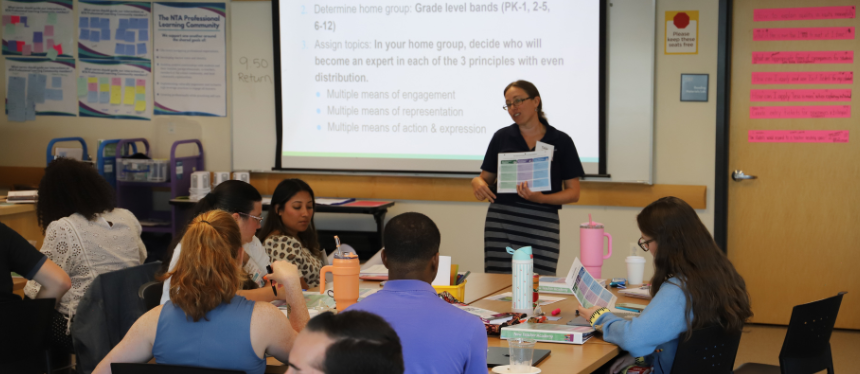Resources for New Teachers
Resources for New Teachers
Resources for New Teachers
Explore our expert-curated list of new teacher resources to empower your teaching journey.
Navigating Professional Expectations
Resources Designed for Early Career Educators
Edutopia: New Teachers - Articles and videos for early-career teachers, including this Starter Pack of Resources for New Teachers. Sign up for a personalized newsfeed curating resources based on your professional interests and grade levels, and check out their newsletter subscription options! Edutopia also has a great YouTube channel with short but impactful videos, many of which show teaching strategies in action.
How To Become a Better Educator in Your First Year - An article from NEA News in which three early career educators share tips for success in the classroom.
The K12 Hub - Free resources and insights for educators from the Teaching Channel, such as their New Teacher Toolkit: Resources for Your First Years in the Classroom. Filter resources by topic (including an option specifically for new teachers) and/or content type (downloadables, lesson plans, podcast episodes, videos, and more).
New Teacher Voices - Hear what new teachers want to share with others in their shoes! Members of the LRC-South New Teacher Academy Professional Learning Community offer their words of wisdom on a variety of topics such as family engagement, professional collaboration, instructional strategies, and more.
Professional Organizations
BookSmiles - A 501(c)(3) organization located in Pennsauken, NJ, dedicated to giving new life to books and distributing them to promote childhood literacy, inspire readers, support educators, and strengthen communities. Build your classroom library through their Teacher Take program and check out their book distribution events for schools!
DonorsChoose - A 501(c)(3) organization matching public donors to classroom projects so that every student has the tools and experiences they need for a great education.
Learning Resource Center Network - A project of the New Jersey Department of Education, Office of Special Education funded through IDEA Part B funds to support the education of students with disabilities, helping them to succeed and to achieve in the least restrictive environment. The four LRCs are strategically located across the state with free annual membership that provides access to a production center, educational resource lending library, professional learning opportunities, and more!
NJEA Consortium - Grant-funded initiative to support the integration of representative curricula into K-12 teaching across New Jersey beyond a “heroes and holidays” approach to diversity.
Professional Membership Organizations for Early Career Educators - Belonging to a professional membership organization helps new teachers build their professional learning network, stay connected to current research in education, and access resources to advance their practice. Browse this list of national and New Jersey-specific professional membership organizations, curated with early career educators in mind!Teacher Wellness
Importance of Self-Care As a Teacher - Advice from NEA Today with helpful tips for self-care.
Infuse Personal Reflection and Self-Care into Your Practice - A handout from Facing History & Ourselves. These reflection questions and action items help educators incorporate self-care and reflection into their teaching.
Professional Quality of Life Self-Care Tools - Learn about core concepts that impact professional quality of life in helper professions and develop fundamental skills for self-care.
Self-Care Starter Kit - Developed by the University at Buffalo School of Social Work to support their students’ development of self-care skills, but applicable for anyone in helper professions. Check out their resources for Developing Your Self-Care Plan and Self-Care Exercises and Activities.
Stress Management for Educators - A collection of practices from Greater Good in Education to support educators in experiencing a greater sense of well-being and resilience.IEPs
Anatomy of an IEP - An infographic from Understood. This helpful visual aid points out the different elements in an IEP and what they mean.
How General Educators Can Get More out of IEP Meetings - An article from Cult of Pedagogy providing an overview of the importance of the IEP and what general educators can do before, during, and after an IEP meeting.
How to use accommodations and modifications in the classroom - An article from Understood providing an overview of key concepts to keep in mind and steps to take when implementing accommodations and modifications for your students.
IEP Tip Sheet Series - A series of tip sheets from the PROGRESS Center on the key components of an individualized education program. They include brief summaries of federal regulations, tips for implementation, and resources.
IRIS Center Resource Locator - Browse a variety of resources under the topic, “IEPs.”
The IEP Project: A Strength-based, Whole Learner Teacher Guide - A guidebook from Digital Promise providing teachers with reflective questions, a sample response bank, strategies from the Learner Variability Navigator, and other resources to write strength-based IEPs.
What to expect in an IEP meeting - A guide from Understood walking teachers through the basics of an IEP meeting and what is required of them.
Why we cry in IEP meetings - An episode of Understood’s In It podcast that offers a glimpse into how families may feel during an IEP meeting and why emotions tend to run high. Includes an episode transcript and links to related resources.
Writing Strength-based IEPs - A Learning Resource Center-South video series of PL Shorts with Dr. Brent Elder focused on using strength-based language and strategies when writing and implementing IEPs and discussing students with disability labels. The last video in the series, “Checklists and Tools to Promote Strength-based IEPs,” is a great resource for general and special education teachers alike.
Substitute Plans
5 Ways to Simplify Prep for Substitutes - A resource from Angela Watsons’ Truth for Teachers describing five detailed tips for planning for substitutes. Available in audio and print formats.
5 Ways to Turn a Worksheet into a Collaborative Critical-Thinking Activity - A resource from Angela Watson’s Truth for Teachers. Worksheets are often an easy go-to resource for substitute plans; they could be paired with one of these strategies to create a more engaging learning experience for students.
8 Things Your Substitute Teacher Needs to Succeed - A quick list from NEA Member Benefits of what to include in your sub plans.
25 Great Learning Podcasts for the Classroom- A curated list of Common Sense Education’s favorite podcasts for the classroom with grade level recommendations ranging from Pre-K through 12th grade. Teachers can build substitute plans around a podcast episode they have pre-approved.
Make a Better Sub Plan Via Video | Edutopia - A middle school teacher explains how he makes a three-to-five minute video to support shorter, clearer sub plans.
Virtual Field Trips - A list of virtual field trips from the Learning Resource Center-South. Teachers can build substitute plans around a virtual field trip related to their content area.Building Positive Relationships
Student Relationships
2 x 10: Getting to Know a Student - This is an effective strategy teachers can use to get to know a student with whom they wish to foster a positive relationship. Greater Good in Education provides an overview of the strategy, including how to prepare, implement, and reflect on the practice as well as the research behind it.
Building Relationships with Empathy Maps - A short video from Edutopia on how to use empathy maps as a visual tool to make better instructional decisions with students’ strengths and needs in mind.
Empathetic sentence starts for teachers - A resource from Understood explaining how to use sentence starters with different purposes in mind to speak empathetically with students. Includes a downloadable pdf to print or save for quick access, detailed article, short video, and links to additional resources.
Relationship Building From Day 1 - An article from Edutopia describing strategies for fostering relationships with middle and high school students starting on the first day of the school year and then growing them all year long.Family Engagement
Apps and Websites for Improving Parent-Teacher Communication - Common Sense Education reviews apps and websites that provide instant, practical, and regular communication tools to encourage active engagement between students, teachers, and parents.
Beginning of the Year Relationship Building Toolkit - A toolkit by the Flamboyan Foundation that gives insight into building intentional, thoughtful relationships with students and their families at the beginning of the year and ensuring students have what they need for success.
How to Write an Effective Email to Parents and Caregivers - A guide from Understood that describes the key components of an effective email and provides a labeled example.
Let Families Teach You About New Students - An article from Edutopia that identifies five thoughtful questions early childhood and elementary teachers can ask families about their learners and explains why these questions matter.
Positive Student Profile - A template from NJOSE and Statewide Parent Advocacy Network (SPAN) that can be completed by the family to provide information about the strengths, challenges, and successes of the child. Teachers can ask family members to complete this profile at the beginning of the school year or glean ideas from it for their own family inventory.
Teacher Tips for Family Communication - A series of PL Shorts from the Learning Resource Center-South that supports teachers in their communication with families to enhance student learning. Each video has an accompanying professional learning guide to facilitate deeper engagement, reflection, and dialogue.
Creating Classroom Communities & Learning Environments
Community Norms & Belonging
Back to School: Building Community for Connection and Learning - A toolkit from Facing History & Ourselves. These teacher resources and classroom activities help teachers lay a foundation for a reflective and caring community.
Contracting - A teaching strategy resource from Facing History & Ourselves outlining the steps of developing a classroom contract to create a community of mutual respect and inclusion. Ideal for grades 6-12.
Creating Communities of Belonging for Students with Significant Cognitive Disabilities - A series of practical mini-guides from the TIES Center that unpacks the ten dimensions of belonging: present, invited, welcomed, known, accepted, involved, supported, heard, befriended, and needed. Each mini-guide defines the dimension, explains its significance, depicts what it looks like in students’ lives, and suggests steps for promoting it in your learning community.
Fostering Belonging With Classroom Norms - A short video by Edutopia on the importance of belonging and how a 7th grade Social Studies teacher uses norms with his students.
Using Surveys to Cultivate a Culturally Responsive Classroom - An article from Edutopia describing how elementary teachers can gain insight into their students’ lives and consider ways to be more culturally responsive in their practice as a result.Classroom Behavior Management
4 Common Classroom Management Mistakes New Teachers Make - and How to Avoid Them - An article from Edutopia that outlines four common mistakes many new elementary teachers make and practical strategies for avoiding them.
Classroom Screen - Create a customized homescreen with visual timers, noise meters, random name selectors, and other helpful classroom management tools. Check out the LRC-South’s curated online resources for Using Tech in the Classroom to browse other tech tools for classroom management and communication.
A Framework for Managing Teacher-Student Conflicts - An article from Edutopia that describes the 2-3-4-5 Method for engaging in conversations with students, parents/guardians, guidance counselors, and administrators regarding student misbehaviors.
IRIS Center Resource Locator - Browse a variety of resources under the topic, “Behavior and Classroom Management.” The fundamental skill sheets in particular are a great resource for new teachers; each one defines the skill/practice, provides a brief overview of the research behind it, outlines the procedures and tips for implementation, and shares examples of the skill/practice in action.
My Radical Approach to Class Management - Middle school teacher and comic strip creator David Finkle describes his process of collaboratively creating a rubric with his students that allows them to regularly reflect on teacher and student behaviors. Posted on MiddleWeb.
Positive behavior strategies: A guide for teachers - A guide from Understood explaining why to use positive behavior strategies, what they look like, how to put them into practice, and how families can support at home.
Designing Learning Environments
27 ways to optimize your classroom design for better learning - An article from Edutopia outlining research-based classroom design tips for lighting, wall space, seating options and more!
Classroom Design Essentials for Educators - A collection of articles and videos from Edutopia on budget-friendly, research-backed ways to set up your classroom with students, spaces, and SEL in mind.
How do Learning Walls enrich K-5 classrooms? - Inquiring Minds Institute describes one of their key tools for making children’s learning visible. Includes multiple examples across K-5 classrooms, as well as videos of students explaining how they use learning walls.
Invite students to co-design their learning environment - An article from ISTE sharing strategies for creating an inclusive learning space and guiding questions for reflection.
Walls That Teach - Season 2, Episode 4 of the Teacher Takeaway Podcast in which four Australian teachers and school leaders discuss the question: How do we leverage the walls around us to enhance the learning cycle? Audio content includes a corresponding article and classroom video.Engaging All Learners
General Resources
The Learner Variability Navigator - A free tool from Digital Promise that helps educators find research-based strategies that support the whole learner. Choose a model that represents your skill area and grade level, identify factors of learner variability you want to support, and browse the recommended strategies. Each strategy typically includes videos of the strategy in action as well.
LRC-South: Online Resources - Explore curated lists of online resources for specific grade levels and content areas, as well as topics that apply to educators across subjects and grade levels such as Universal Design for Learning, educational technology, social emotional learning, and supporting English Language Learners and students with disabilities.
New to Teaching ELLs? - Colorín Colorado’s compiled list of resources to help new ELL teachers navigate their experiences in the classroom. Explore video interviews, featured articles, books and booklists, guides and toolkits, research and reports, social media networks, and other recommended resources.
TIES Inclusive Practice Series (TIPS) - A series of tips and resources from the TIES Center sharing practical information, ideas, and strategies that support inclusive education.
Understood - Resources for educators navigating behaviors, learning processes, and everyday skills with students who think and learn differently. To deepen your understanding of their everyday challenges, check out Through My Eyes: Understood’s collection of real-life simulations and personal stories from kids with ADHD, dyslexia, and dyscalculia.
Instructional Strategies
Classroom Strategy Library | Reading Rockets - Effective, research-based classroom strategies to support young students’ skills in phonological awareness, decoding, fluency, vocabulary, comprehension, and writing.
IRIS Center Resource Locator - Browse a variety of resources under the topics such as content instruction, differentiated instruction, learning strategies, and more!
Reading & Writing Strategies - Browse AdLit’s library of strategies that support students in creating stronger connections and deeper understanding of text and topics. These strategies would be helpful in any content area that relies heavily on reading and writing!
Teaching + Learning Resources | Right Question Institute - Find resources for using the Question Formulation Technique, or QFT, in any grade level and subject area. This teaching strategy helps students generate and improve questions to promote critical thinking.
Teaching Strategies | Facing History & Ourselves - These student-centered teaching strategies can be paired with any academic content to promote student discussions, strengthen literacy skills, deepen engagement, and support critical thinking.
Teaching Strategies | Learning for Justice - Instructional strategies for building literacy and social emotional skills while exploring meaningful texts. Each strategy is Common Core-aligned and includes a special note about English language learners and connections to anti-bias education.
The Teacher Toolkit - Engaging techniques for effective teaching. Each tool includes an explanation of how and when to use it, along with a template students can use to implement. Some also include videos of the strategies in action!
Lesson Planning
|
Backward Design: The Basics - Backward design helps educators plan with clear, measurable, meaningful learning goals as a guide. Jennifer Gonzalez gives an overview of this approach to lesson planning with specific steps, examples, and guiding questions. Listen to the podcast episode or read the corresponding article from The Cult of Pedagogy. Inclusive Big Ideas - A resource from the TIES Center to support educators when planning grade-level standards-based lessons for all students, including those with significant cognitive disabilities. Includes ideas for instructional strategies and activities; considerations for removing common barriers to student learning; identification of essential concepts and vocabulary; and cross-curricular connections. Lesson Planning with UDL - Step-by-step guidance from Understood to support planning a lesson in three stages: proactive design, implementation, and reflection. See the downloadable lesson planning template that can be used with a co-planning partner! SEL 3 Signature Practices - A playbook from CASEL outlining three research-based practices for embedding social and emotional learning opportunities in your lesson plans. Each signature practice includes a variety of examples with clear directions for implementation, options for modification, and explanation of SEL connections. |
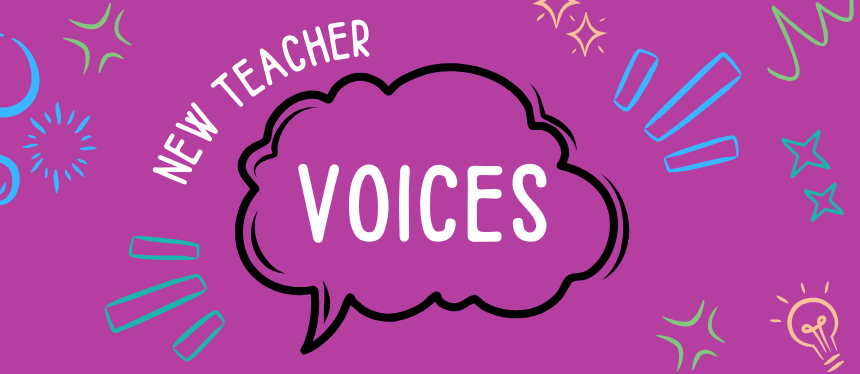
New Teacher Voices
Hear what new teachers want to share with others in their shoes! These resources have been developed with novice teachers in mind by NTA Professional Learning Community members. Explore their words of wisdom, advice on professional collaboration, and examples of instructional strategies. Learn More
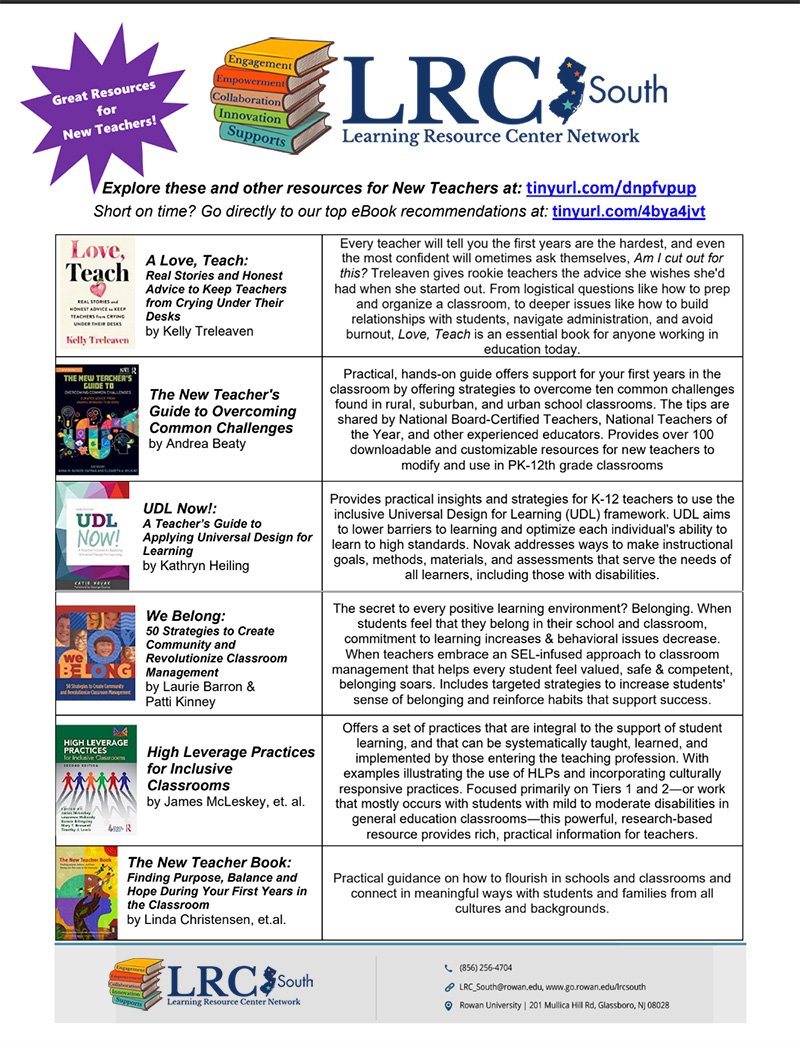
LRC-South Resources for New Teachers
The LRC-South has numerous PreK-21 educational resources for members to borrow. To explore a curated list of resources ideal for new teachers, Click Here
See a resource you like? Reserve it today through our LRC Xpress Service.
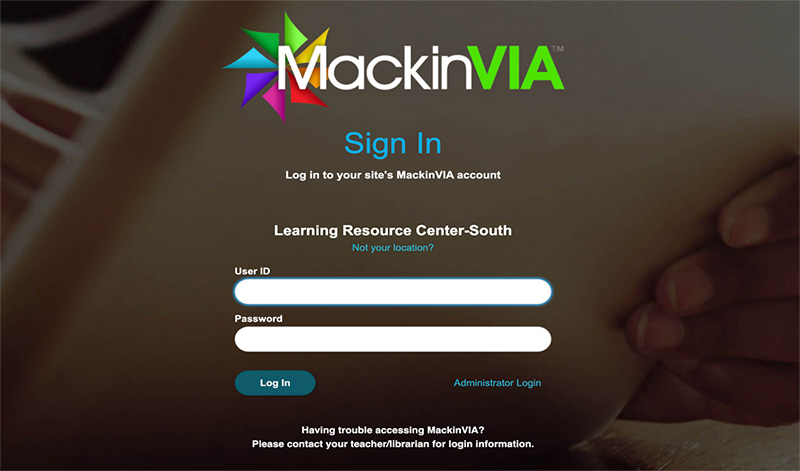
eBooks and Audiobooks for Educators
Get instant access to our library of free Ebooks and audiobooks to help support teaching in the classroom. Just log in with your LRC-S member number and password - Learn More
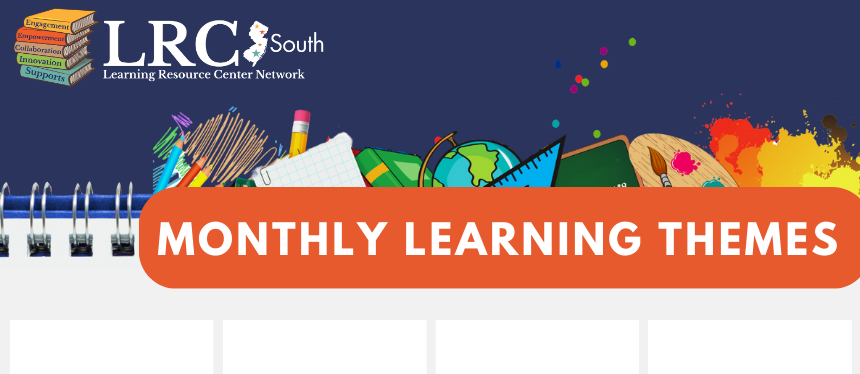
LRC-South Monthly Learning Themes
Enhance learning and engagement in the classroom by integrating monthly learning activities. The resources curated below provide opportunities for discussion and appreciation of individual abilities and the celebration of significant events and historical events. Learn More
